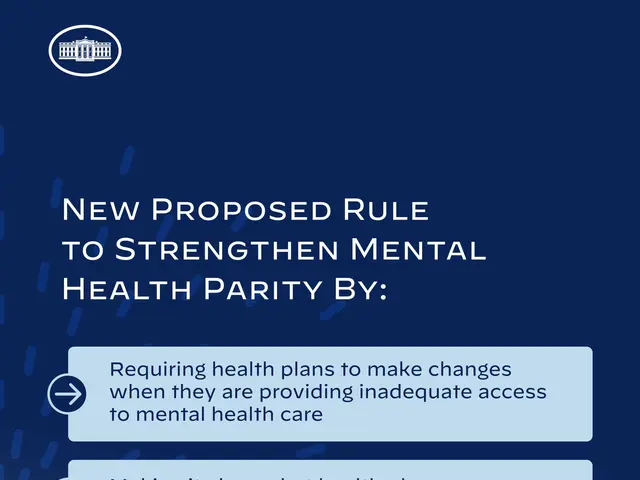FDA Advisory Committee Debates Prescription of SSRIs During Pregnancy
The use of Selective Serotonin Reuptake Inhibitor (SSRI) antidepressants during pregnancy has become a subject of intense debate, with a recent FDA expert panel raising concerns about potential links between SSRI use and adverse outcomes.
The discussion revolves around the delicate balance between fetal risks and the benefits of treating maternal depression. The panel's concerns encompass spontaneous abortion, congenital malformations, preterm birth, low birth weight, and possible neurodevelopmental issues in children.
However, the panel's conclusions have been met with critical scrutiny from numerous experts and organizations. Critics argue that the panel overemphasizes the risks of SSRIs, while downplaying the significant dangers of untreated maternal depression, such as increased maternal morbidity, mortality, and risk of suicide.
Moreover, concerns have been raised about the panel's methodology, including a lack of reproductive psychiatry specialists, a skeptical slant among members, and the use of studies that lack proper controls.
Regarding the potential risks and benefits, the use of SSRIs during pregnancy may increase the risk of adverse outcomes, such as spontaneous abortion, low birth weight, preterm birth, and possible congenital malformations. On the other hand, SSRIs can provide effective treatment for depression and anxiety, preventing relapse, postpartum depression, suicide, and improving overall maternal health.
Experts stress that untreated or inadequately treated perinatal depression carries serious risks. As such, SSRIs remain an important treatment option when clinically indicated.
The debate underscores the complexity of risk-benefit decisions and the need for more balanced, nuanced patient education, improved research with controlled studies, and better transparency in treatment options.
Alternative treatments like therapy or older antidepressants have been suggested as possible choices for depression during pregnancy. However, the limited availability of strong studies on the effects of SSRIs during pregnancy due to pregnant women not typically being included in drug trials complicates the issue further.
The ongoing debate reflects continuing uncertainty and the importance of individualized clinical decision-making to optimize outcomes for both mother and baby. The FDA's recent panel has spotlighted valid concerns about SSRI use during pregnancy, but its focus on harms without adequately weighing the consequences of not treating maternal psychiatric illness has been criticized.
The biggest concern from many is ensuring that pregnant women understand both the risks of medication and the dangers of untreated depression. Proposals to address this include adding QR codes on SSRI bottles that lead to videos explaining the risks in plain language.
The debate remains complicated, with strong views on both sides and many unanswered questions about supporting mothers and their babies. The meeting did not result in any formal rule changes, but it has sparked debate about how to handle depression in pregnancy.
Not everyone agrees with the more skeptical view on SSRI use during pregnancy. A former FDA official warned that downplaying their value could cause panic. Despite the concerns, it's important to note that many SSRIs have been well-studied and found to be safe during pregnancy.
In conclusion, the FDA's recent panel has highlighted the need for a more balanced approach to the use of SSRIs during pregnancy, emphasizing the importance of individualized clinical decision-making and improved research to better understand the risks and benefits. The topic remains a complex and emotionally charged issue, with many unanswered questions and a need for continued dialogue among experts and the public.
Science and health-and-wellness sectors have expanded the conversation surrounding the use of Selective Serotonin Reuptake Inhibitor (SSRI) antidepressants in pregnancy. Fitness-and-exercise and mental-health professionals support the need for understanding the impact of nutrition on maternal mental health during pregnancy, as its absence or inadequacy might exacerbate depression and anxiety. For example, consuming a well-balanced diet rich in essential vitamins and minerals, such as folate, omega-3 fatty acids, and iron, may contribute to reducing the adverse effects on both mother and baby.




